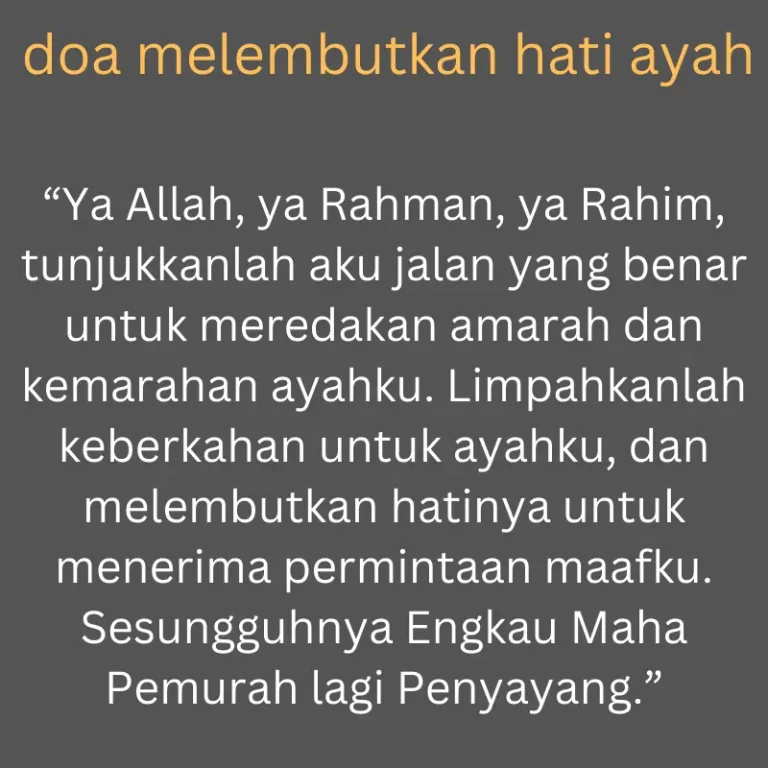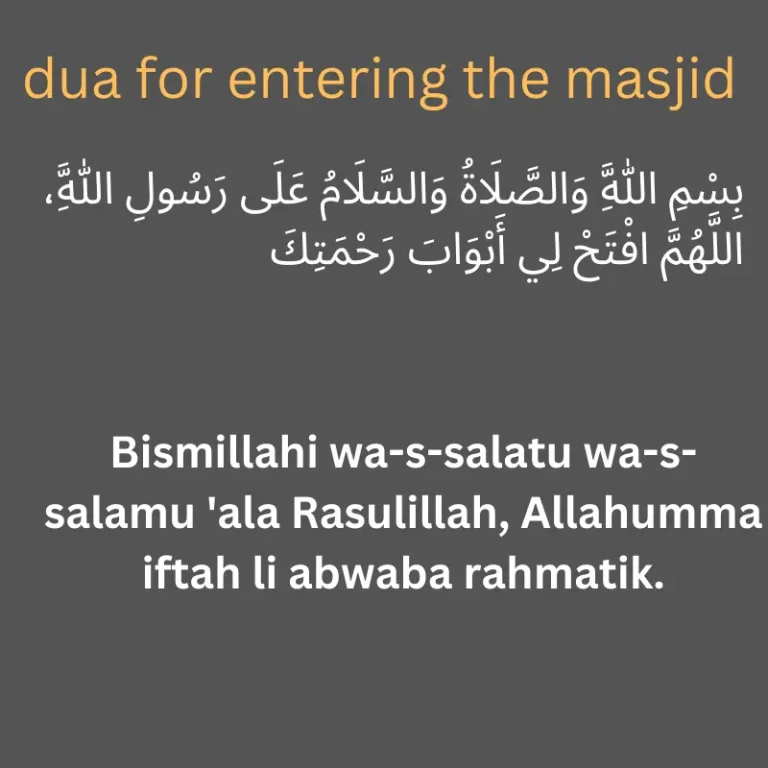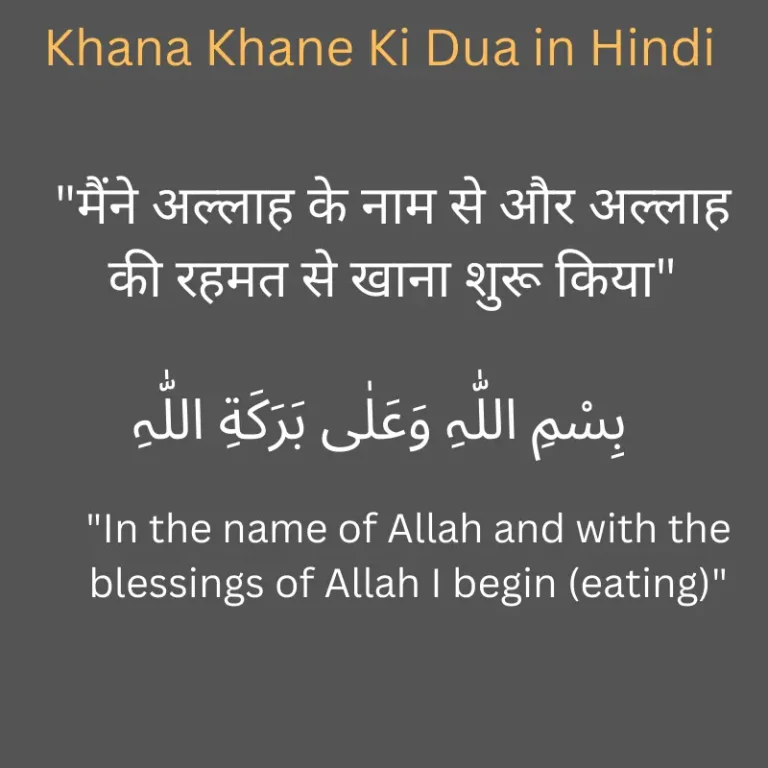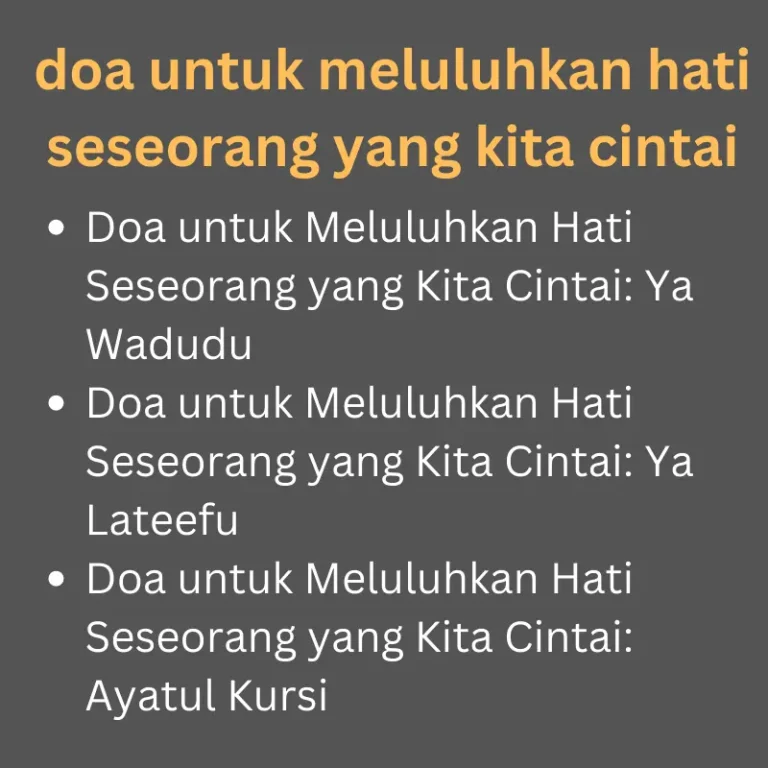Dua Istikhara is a supplication made to seek guidance from Allah (SWT) when facing a decision or dilemma. Derived from the Arabic words “dua” meaning prayer and “istikhara” meaning seeking guidance, this practice holds deep significance in Islamic traditions. It is an act of surrendering oneself to the will of Allah (SWT) and seeking His direction in matters of importance.
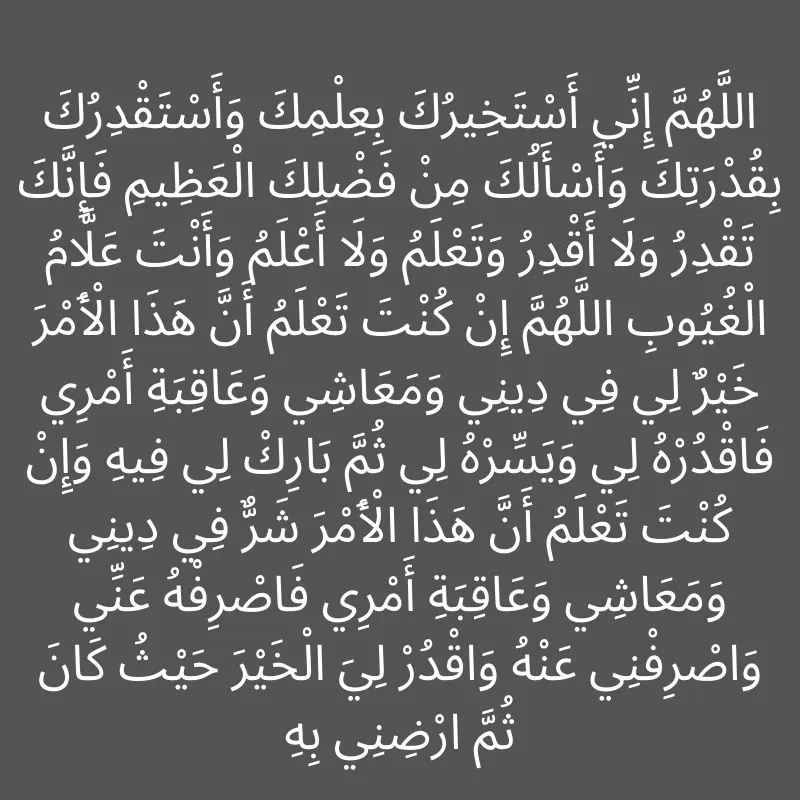
Introduction to Dua Istikhara
Dua Istikhara is a powerful Islamic supplication that seeks guidance from Allah (SWT) to decide or seek direction. It is an important practice for Muslims facing difficult choices or uncertain situations in life, as it helps them make informed decisions based on the will of Allah (SWT).
The word Istikhara itself means “to seek goodness” or “to seek guidance from Allah (SWT),” and the Istikhara prayer is a specific prayer that seeks the help of Allah (SWT) in making the right choice. It is a Sunnah practice, which means that it was regularly performed by the Prophet Muhammad (SAW) during his lifetime. It is considered a highly recommended act of worship in Islam.
Understanding the Purpose and Significance of Dua Istikhara
Dua Istikhara lies in the fact that it is a Sunnah practice, meaning it was regularly performed by the Prophet Muhammad (SAW) and is therefore considered a highly recommended act of worship in Islam. It is a means of seeking Allah’s (SWT) guidance and surrendering to His will, demonstrating one’s faith and trust in Allah’s (SWT) wisdom and power.
Istikhara prayer is not just limited to seeking guidance in worldly affairs, such as choosing a spouse or a career. It can also be used to seek guidance in spirituality and religion, such as choosing the right path or seeking forgiveness and repentance from Allah (SWT).
Steps to Perform Istikhara prayer
Here are the steps to perform Dua Istikhara:
Make Wudu: Before performing Dua Istikhara, it is recommended to perform ablution (Wudu) to purify oneself and prepare for the supplication.
Perform Two Rak’ahs of Nafl Prayer:
- After making Wudu, perform two rak’ahs of voluntary prayer (Nafl) to seek guidance through Istikhara.
- In the first rak’ah, recite Surah Al-Fatihah and a short Surah or some verses from the Quran.
- In the second rak’ah, recite Surah Al-Fatihah and a short Surah or verses from the Quran.
Recite Dua Istikhara: After completing the Nafl prayer, recite the Dua Istikhara. The supplication starts with seeking Allah’s (SWT) blessings and praising Him, then asking for guidance and direction in the matter at hand. The full Dua Istikhara can be found in various Islamic sources.
Repeat the Dua: After reciting the Dua Istikhara, repeat it at least three times, with sincerity and concentration, while focusing on the matter you seek guidance on.
Await Guidance from Allah (SWT): After performing Dua Istikhara, it is important to trust Allah’s (SWT) guidance and await signs or clarity regarding the matter. Allah (SWT) may guide various means, such as a feeling in one’s heart, a dream, or a sudden opportunity that arises.
The Etiquettes and Recommended Times for Dua Istikhara
Performing Dua Istikhara is a Sunnah practice that has certain etiquettes and recommended times associated with it. Here are some of them:
Purity: It is recommended to perform Istikhara prayer in a state of purity, preferably after performing ablution (Wudu).
Timing: The best time to perform Dua Istikhara is at night, particularly after offering the Isha prayer. However, it can also be performed at any other time as long as it is done with sincerity and concentration.
Intention: The intention for performing Dua Istikhara should be solely for seeking Allah’s (SWT) guidance and help in making the right decision, not for any other ulterior motive.
Common Misconceptions About Istikhara prayer
Several common misconceptions about Istikhara prayer are important to address:
Dua Istikhara is a way to force Allah’s (SWT) will: This is a common misconception that suggests that by performing Istikhara prayer, one can manipulate Allah’s (SWT) will to align with their desires. However, this is incorrect as Dua Istikhara is a means of seeking guidance from Allah (SWT) and surrendering to His will, not the other way around.
Istikhara prayer guarantees a specific outcome: Another common misconception is that Dua Istikhara will result in a specific outcome or answer to the supplicant’s question. However, this is not the case, as Dua Istikhara seeks guidance and direction from Allah (SWT) based on His wisdom and knowledge. The outcome may not necessarily align with the supplicant’s desires.
Dua Istikhara is only for major life decisions: Some people believe that it is only necessary for major life decisions, such as marriage or career choices. However, Istikhara prayer can be performed for any matter, big or small, as it is a means of seeking Allah’s (SWT) guidance and blessings in all aspects of life.
How to Interpret the Signs and Guidance Received from Dua Istikhara
Interpreting the signs and guidance from Dua Istikhara requires patience, trust in Allah (SWT), and a deep understanding of one’s intentions and circumstances. Here are some general guidelines to follow:
Seek guidance from a knowledgeable person: If you need help interpreting the signs or guidance from Istikhara prayer, it is recommended to seek guidance from a knowledgeable person, such as a religious scholar or a trusted mentor.
Reflect on your intentions and actions: Before interpreting any signs or guidance, reflecting on your intentions and actions is important. Are you seeking guidance sincerely and with pure intentions? Are you taking appropriate actions based on the guidance received?
Consider the context and circumstances: When interpreting signs or guidance from Istikhara Prayer, it is important to consider the context and circumstances of the situation.
Istikhara Prayer in the Light of the Quran and Hadith
Istikhara Prayer is a supplication that is strongly recommended in Islam, and it is based on both the Quran and Hadith. Here are some references to Istikhara Prayer in the Quran and Hadith:
The Quranic reference to seeking guidance: In the Quran, Allah (SWT) says, “And consult them in the matter. Then when you have taken a decision, put your trust in Allah” (3:159). This verse highlights the importance of seeking advice and guidance and trusting Allah (SWT).
The Hadith on Istikhara: The Prophet Muhammad (SAW) said, “If any one of you is concerned about a decision he has to make, then let him pray two rak’ahs of non-obligatory prayer and say: ‘O Allah, I seek Your guidance (istikharah) in this matter, and I ask You to show me the right path and help me make the right decision. Make it easy for me and bless it for me'” (Bukhari).

